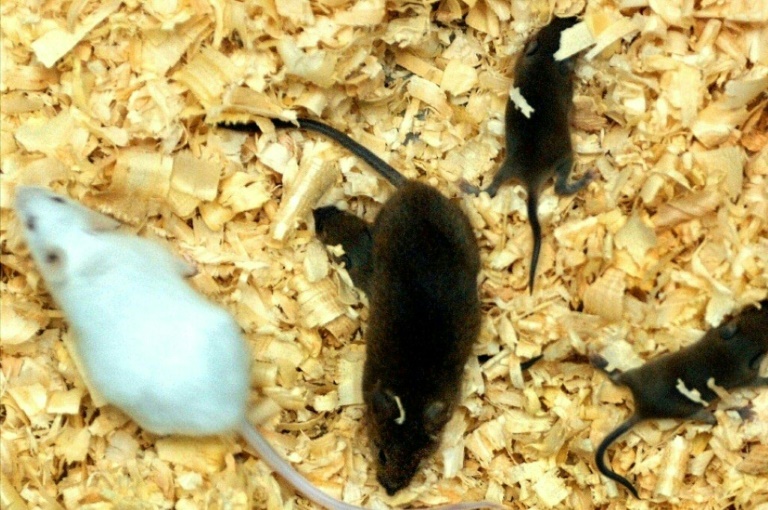Eating less often does more to improve the health and lifespan of rodents than simply eating less, a study said Monday.
Researchers looking at mice on different diets found those who were fed fewer calories in a single daily feeding lived longer than mice eating the same number of calories distributed throughout the day.
The study, published in Nature Metabolism, showed mice who ate only once a day also demonstrated improved metabolism.
Study author Dudley Lamming of the University of Wisconsin told AFP that scientists have known for about a century that restricting calories extends the lifespan of rodents.
But previous studies on mice and calorie restriction had included unintentional fasting with mice typically fed just once a day.
Lamming’s team decided to find out whether the timing between feedings might play a role — and discovered it was not the quantity of food alone that mattered.
“Instead, calorie restricted diets ensure that mice are fasted for much of the day – and that imposed fasting-period (when we eat) is critical for the benefits of calorie restriction to life and health.”
Lamming’s team put mice on different diets, with a control group getting unlimited access to regular food.
Two other groups had calories restricted by 30 percent, one with access to low-calorie food all day and the other receiving a 30 percent smaller amount of regular food in a single feeding with a 21-hour fast.
The study shows that mice on a calorie restricted diet with 21 hours between meals lived about half a year longer than mice who ate as much as they wanted at any time of day.
Mice with constant access to a low-calorie diet, on the other hand, lived lightly shorter lives than the control group, even though they consumed fewer calories.
“The imposed fasting period is essential for the benefits of a calorie restricted diet,” Lamming said.
A final group of mice was trained to eat a similar amount of food as the control but in a three-hour period followed by a long daily fast.
– Humans? Not so fast –
Though their longevity was not measured, the mice in the last group — which fasted without reducing calorie intake — showed just as many health benefits as the group that ate fewer calories and fasted.
“(Both groups) are better able to regulate their blood sugar and to better adapt their metabolism to different demands during the course of the day,” Lamming said.
Mice on a low-calorie diet who ate throughout the day meanwhile did not show benefits such as better blood sugar control, improved strength in old age and longer life.
Diets that include intermittent fasting are popular among celebrities from Hugh Jackman to Kourtney Kardashian.
But Lamming points out that while short-term studies on humans seem to confirm that restricting food intake to a four- to eight-hour window in the day “seems to have some benefits”, the long term consequences remain unknown.
“We still don’t know the best time of day to fast, if different people might respond to fasting or time-restricted feeding differently,” he added.
One takeaway for our species: people already cutting their daily calorie count by 20 or 30 percent may want to consider limiting the time frame for eating those meals.
“If our findings apply to people, they may be losing some of the benefits of calorie restriction by spreading out their meals throughout the day,” he said.









